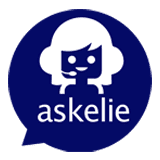Legal AI for Accessibility | Breaking Barriers in Law with AskElie and askVERA
Legal AI for accessibility is not just innovation. It is inclusion, made possible by AI that understands the role of law in people’s lives. For law firms, this shift is urgent. Clients now expect services to be accessible, inclusive, and compliant, whether they are neurodiverse, visually impaired, or simply seeking clearer communication. If your firm wants to lead, not follow, this is your moment.
Why Accessibility Matters in Law
Legal services are changing fast. Virtual hearings, digital filings, and AI-driven contract review are now mainstream. Yet for many clients, barriers remain. Complex legal language, inaccessible documents, and rigid processes can prevent equal access to justice.
Legal AI for accessibility addresses this directly. It ensures that technology doesn’t just speed up admin for lawyers but makes the law more approachable for everyone. By embedding accessibility into digital legal services, firms meet compliance requirements and also build trust with their clients.
How Legal AI for Accessibility Changes Client Experience
The client journey is often full of hidden friction. From onboarding documents to hearing preparation, small accessibility gaps can create big frustrations. Legal AI for accessibility helps firms redesign these touchpoints:
- Documents available in Easy Read and alternative formats
- Clear, structured communication that reduces confusion
- Digital tools that adapt to different client needs
This isn’t just about compliance or law. It’s about improving client relationships by showing that your firm listens, adapts, and cares.
Practical Steps for Firms Adopting Legal AI for Accessibility
Getting started doesn’t need to be complex. Firms can begin by:
- Reviewing current client documents for accessibility gaps
- Testing Easy Read or symbol-supported outputs with askVERA
- Training staff to use inclusive communication formats
- Sharing accessibility commitments with clients to build trust
Even small steps show clients you take inclusion seriously.
Legal AI for Accessibility in Virtual Hearings and Contracts
The courtroom and the contract table are two areas where accessibility can make or break client confidence.
- Virtual hearings: Legal AI for accessibility can provide live captioning, simplified summaries, and clear guidance so that clients stay engaged and informed.
- Contract reviews: Tools like AskElie and askVERA make complex agreements easier to understand by extracting obligations, dates, and risks, then presenting them in client-friendly formats.
Accessibility here reduces stress for clients and cuts down on the time lawyers spend explaining basic information.
Breaking Barriers with askVERA
askVERA is designed to transform accessibility in law. Built with inclusion at its core, askVERA provides:
- Easy Read versions of contracts and case documents
- Visual and symbol-supported communication for clients with learning differences
- Seamless integration with existing case management and document systems
This means law firms can offer services that are both efficient and inclusive without extra manual effort.
Why Legal AI for Accessibility is a Competitive Advantage
For many firms, accessibility has been seen as a compliance box to tick. But times have changed. Legal AI for accessibility is now a strategic advantage:
- Client retention: Inclusive services build loyalty and trust.
- Business growth: Firms that champion accessibility attract new clients, especially in regulated sectors.
- Reputation: Leading on accessibility sets your firm apart in an increasingly competitive market.
Firms that take accessibility seriously are not just modernising. They are showing leadership in an area that matters to regulators, clients, and society.
The Future of Law is Inclusive
The next wave of legal innovation will not just be about speed or cost savings. It will be about breaking barriers. Legal AI for accessibility ensures that no client is left behind in the digital transformation of law.
AskElie and askVERA are already proving that inclusion and innovation can go hand in hand. By adopting these tools, law firms position themselves as forward-thinking, client-focused, and socially responsible.
The law should be accessible to everyone. With legal AI for accessibility, it finally can be.



Comments are closed